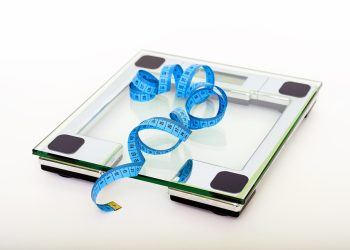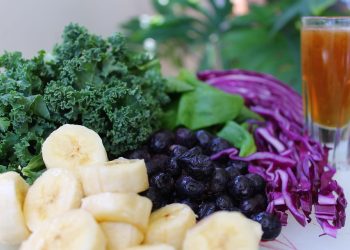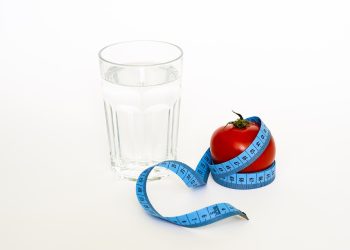Losing weight and, more importantly, keeping it off can feel like an uphill battle. Many people embark on restrictive diets and grueling exercise routines, only to find themselves back where they started, or even heavier, after a few months. Sustainable weight loss isn’t about quick fixes; it’s about making lasting lifestyle changes that support your overall health and well-being.
Understanding the Fundamentals of Weight Loss
Before diving into specific strategies, it’s crucial to understand the fundamental principle behind weight loss: creating a calorie deficit. This means consistently consuming fewer calories than your body burns. However, achieving a calorie deficit healthily and sustainably is the key.
Calorie Deficit: More Than Just Numbers
While tracking calories can be helpful, focusing solely on the numbers can be detrimental. The *quality* of your calories matters just as much as the quantity. Prioritizing nutrient-dense foods will keep you feeling fuller for longer and provide your body with the essential vitamins and minerals it needs.
- Prioritize Whole Foods: Focus on fruits, vegetables, lean proteins, and whole grains.
- Limit Processed Foods: These are often high in calories, unhealthy fats, and added sugars, offering little nutritional value.
- Hydrate Adequately: Drinking plenty of water can help you feel full and can also boost your metabolism.
The Power of a Balanced Diet
A balanced diet is the cornerstone of sustainable weight loss. It’s not about deprivation; it’s about nourishing your body with the right nutrients to thrive. Consider these key components:
Macronutrient Balance
Understanding macronutrients (protein, carbohydrates, and fats) and how they contribute to your overall diet is essential. Each plays a vital role in your body’s functions.
- Protein: Crucial for building and repairing tissues, protein also helps you feel full and satisfied. Aim for lean sources like chicken breast, fish, beans, and lentils.
- Carbohydrates: Your body’s primary source of energy. Choose complex carbohydrates like whole grains, fruits, and vegetables over refined carbohydrates like white bread and sugary drinks.
- Fats: Essential for hormone production and cell function. Focus on healthy fats like avocados, nuts, seeds, and olive oil.
Micronutrient Importance
Vitamins and minerals (micronutrients) are equally important for overall health and weight management. A deficiency in certain micronutrients can hinder your weight loss efforts.
- Fruits and Vegetables: Packed with vitamins, minerals, and fiber, fruits and vegetables should form the foundation of your diet.
- Consider a Multivitamin: If you’re concerned about nutrient deficiencies, talk to your doctor about whether a multivitamin is right for you.
Exercise: More Than Just Burning Calories
While diet plays a significant role in weight loss, exercise is crucial for improving your overall health and maintaining a healthy weight long-term. It’s also important for building muscle mass, which helps boost your metabolism.
Cardio vs. Strength Training
Both cardio and strength training offer unique benefits and should be incorporated into your exercise routine.
- Cardiovascular Exercise: Activities like running, swimming, and cycling burn calories and improve cardiovascular health. Aim for at least 150 minutes of moderate-intensity cardio per week.
- Strength Training: Building muscle mass increases your metabolism, making it easier to burn calories even at rest. Aim for at least two strength training sessions per week, targeting all major muscle groups.
Finding Activities You Enjoy
The key to sticking with an exercise routine is to find activities you genuinely enjoy. Experiment with different types of exercise until you find something that you look forward to doing.
Examples:
- Dancing
- Hiking
- Yoga
- Team sports
The Importance of Mindful Eating
Mindful eating involves paying attention to your hunger and fullness cues, savoring each bite, and eating without distractions. It can help you develop a healthier relationship with food and prevent overeating.
Tips for Mindful Eating
- Eat Slowly: Put your fork down between bites and focus on the taste and texture of your food.
- Eliminate Distractions: Turn off the TV and put away your phone while you’re eating.
- Pay Attention to Hunger Cues: Eat when you’re truly hungry and stop when you’re comfortably full.
- Don’t Eat Out of Boredom or Emotion: Find alternative ways to cope with stress and negative emotions.
The Role of Sleep and Stress Management
Adequate sleep and effective stress management are often overlooked factors in weight loss. Both can significantly impact your hormones and metabolism.
Sleep Deprivation and Weight Gain
Lack of sleep can disrupt hormones that regulate appetite, leading to increased cravings and overeating. Aim for 7-9 hours of quality sleep per night.
Stress and Cortisol
Chronic stress can lead to elevated levels of cortisol, a hormone that promotes fat storage, particularly in the abdominal area. Find healthy ways to manage stress, such as:
- Meditation
- Yoga
- Spending time in nature
- Engaging in hobbies you enjoy
Building Sustainable Habits: Small Changes, Big Results
Sustainable weight loss is about making gradual, lasting changes to your lifestyle. Focus on incorporating small, manageable habits that you can maintain over the long term.
Examples of Sustainable Habits
- Swap sugary drinks for water: This simple change can significantly reduce your calorie intake.
- Walk for 30 minutes most days of the week: Even a small amount of regular exercise can make a difference.
- Prepare your meals in advance: This helps you control your portion sizes and make healthier choices.
- Add more vegetables to your meals: Vegetables are low in calories and packed with nutrients.
- Take the stairs instead of the elevator: Small bursts of activity throughout the day can add up.
Overcoming Challenges and Maintaining Motivation
Weight loss is rarely a linear process. There will be setbacks and challenges along the way. It’s important to be patient with yourself and to focus on progress, not perfection.
Strategies for Staying Motivated
- Set Realistic Goals: Don’t try to lose too much weight too quickly. Aim for a gradual and sustainable weight loss of 1-2 pounds per week.
- Track Your Progress: Keep track of your weight, measurements, and exercise habits to monitor your progress and stay motivated.
- Find a Support System: Connect with friends, family, or a support group for encouragement and accountability.
- Reward Yourself (Non-Food Rewards): Celebrate your successes with non-food rewards, such as a new workout outfit or a massage.
- Don’t Give Up After a Setback: Everyone has slip-ups. The key is to get back on track as soon as possible.
Seeking Professional Guidance
If you’re struggling to lose weight on your own, consider seeking guidance from a registered dietitian or a certified personal trainer. They can provide personalized advice and support to help you achieve your goals.
Benefits of Working with a Professional
- Personalized Meal Plans: A registered dietitian can create a meal plan that meets your individual needs and preferences.
- Effective Exercise Programs: A certified personal trainer can design an exercise program that is tailored to your fitness level and goals.
- Accountability and Support: A professional can provide accountability and support to help you stay on track.
Conclusion
Sustainable weight loss is a journey, not a destination. It’s about making long-term lifestyle changes that support your overall health and well-being. By focusing on a balanced diet, regular exercise, mindful eating, adequate sleep, effective stress management, and building sustainable habits, you can achieve your weight loss goals and maintain a healthy weight for life. Remember to be patient with yourself, celebrate your progress, and seek professional guidance when needed. The key is to create a lifestyle that you enjoy and can maintain long-term, rather than relying on quick fixes or fad diets.
Frequently Asked Questions (FAQs)
Q: How quickly should I expect to lose weight?
A: A healthy and sustainable rate of weight loss is generally considered to be 1-2 pounds per week. Losing weight too quickly can be detrimental to your health and can lead to muscle loss and a slower metabolism.
Q: What are some healthy snack options?
A: Great healthy snack options include:
- Fruits (apple, banana, berries)
- Vegetables with hummus
- Nuts and seeds
- Greek yogurt
- Hard-boiled eggs
Q: Is it okay to have cheat meals?
A: Allowing yourself occasional indulgences can actually help you stay on track in the long run. Instead of completely restricting yourself, try incorporating planned cheat meals or “treat meals” into your diet. The key is to enjoy them in moderation and not let them derail your progress.
Q: What if I have a bad day and overeat?
A: Everyone has bad days. Don’t beat yourself up about it. Just get back on track with your healthy eating and exercise habits the next day. One bad day won’t ruin your progress.
Q: Do I need to cut out all carbs to lose weight?
A: No, you don’t need to cut out all carbs. Carbohydrates are an important source of energy for your body. The key is to choose complex carbohydrates over refined carbohydrates. Focus on whole grains, fruits, and vegetables, and limit your intake of white bread, sugary drinks, and processed foods.
Q: How important is water for weight loss?
A: Water is very important for weight loss. Drinking enough water can help you feel full, boost your metabolism, and flush out toxins. Aim to drink at least 8 glasses of water per day.
Q: Can stress impact my weight loss efforts?
A: Yes, stress can significantly impact your weight loss efforts. Chronic stress can lead to elevated levels of cortisol, a hormone that promotes fat storage, particularly in the abdominal area. Find healthy ways to manage stress, such as meditation, yoga, or spending time in nature.
Q: Is it necessary to count calories to lose weight?
A: While counting calories can be helpful for some people, it’s not necessary for everyone. If you find calorie counting stressful or overwhelming, focus on eating a balanced diet of whole foods and practicing mindful eating.
Q: What are the benefits of strength training for weight loss?
A: Strength training helps build muscle mass, which increases your metabolism, making it easier to burn calories even at rest. It also helps improve your overall body composition and strength.
Q: How do I stay motivated when I feel like giving up?
A: Set realistic goals, track your progress, find a support system, reward yourself (non-food rewards), and remember why you started. Focus on the positive changes you’re making and celebrate your successes along the way.












